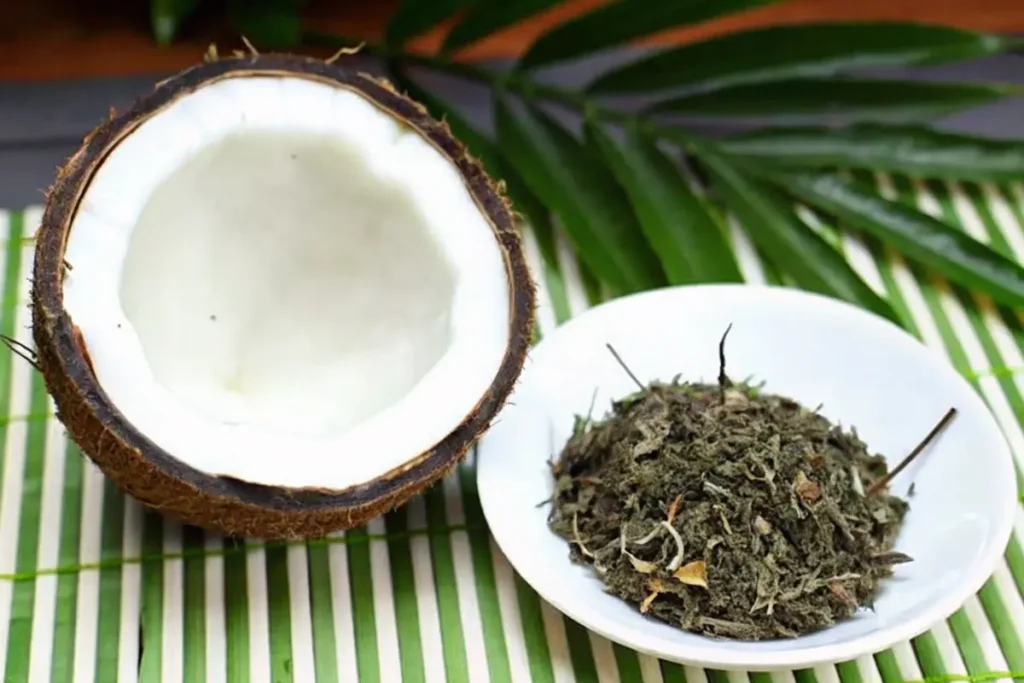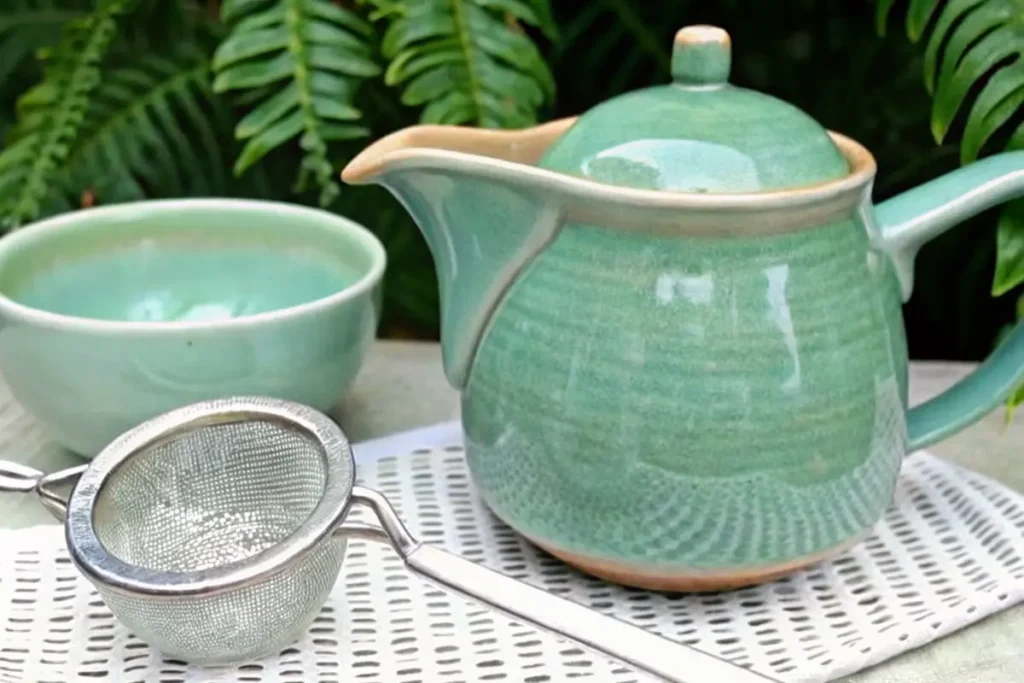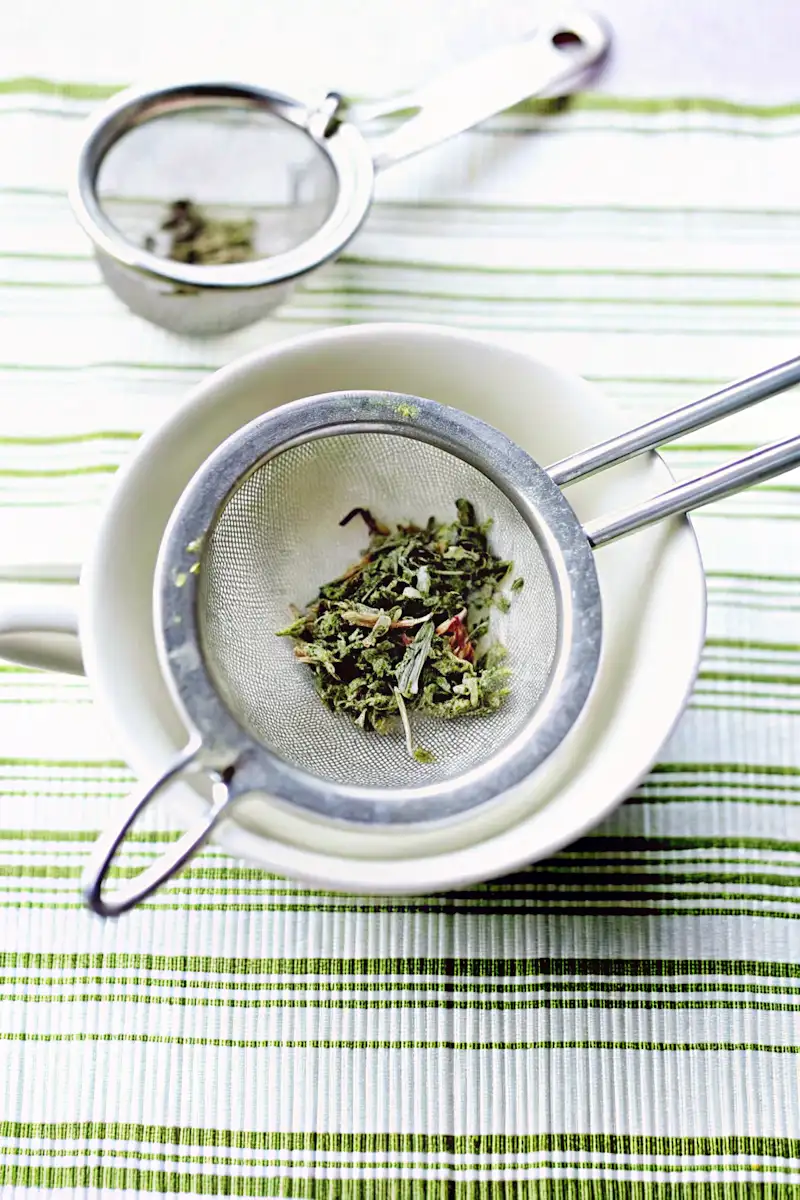Are you craving a refreshing drink that satisfies both your taste buds and wellness goals—without the dairy? If so, Coconut Milk Green Tea might just become your new go-to beverage. Creamy, antioxidant-rich, and naturally dairy-free, this vibrant fusion is taking over kitchens and cafes alike.
I first stumbled upon this delightful pairing during a lazy Sunday brunch. I’d run out of regular milk, so I reached for a can of coconut milk instead. A few sips later, I was hooked. The earthy depth of green tea mellowed by the silky, slightly sweet creaminess of coconut milk created a balance I didn’t know I was missing.
Today, I’m thrilled to share this ultimate guide with you—packed with recipes, science-backed benefits, and everything you need to master your next cup. Whether you’re a matcha lover, a wellness explorer, or just curious about new drinks, this resource covers it all.
Let’s dive into why Coconut Milk Green Tea is more than just a trend—it’s a lifestyle choice brimming with flavor, health, and versatility.
Table of Contents
Coconut Milk Green Tea: Creamy, Healthy & Dairy-Free Recipes
A creamy, dairy-free fusion of antioxidant-rich green tea and tropical coconut milk. Perfect hot or iced for a healthful, refreshing boost.
- Prep Time: 5 minutes
- Cook Time: 5 minutes
- Total Time: 10 minutes
- Yield: 1 serving 1x
- Category: Beverage
- Method: Stovetop
- Cuisine: Fusion
- Diet: Vegan
Ingredients
- 1 tsp high-quality loose-leaf green tea (Sencha or Gyokuro)
- 1 cup filtered water
- 1/2 cup full-fat coconut milk (canned, no additives)
- 1 tsp raw honey or maple syrup (optional)
- Small pinch of sea salt (optional)
Instructions
- Heat water to 175°F–185°F (not boiling).
- Steep green tea for 2–3 minutes.
- Warm coconut milk gently without boiling and froth if desired.
- Combine tea and milk slowly in a cup.
- Add sweetener and sea salt if using. Stir and enjoy warm.
Notes
Use ceremonial matcha or high-quality green tea for best results. Light coconut milk can be substituted for fewer calories. Try iced or as a matcha latte for variety.
Nutrition
- Serving Size: 1 cup
- Calories: 120
- Sugar: 3g
- Sodium: 40mg
- Fat: 10g
- Saturated Fat: 9g
- Unsaturated Fat: 1g
- Trans Fat: 0g
- Carbohydrates: 4g
- Fiber: 0g
- Protein: 1g
- Cholesterol: 0mg

The Superpower Synergy: Deconstructing Green Tea & Coconut Milk
Green Tea: An Ancient Elixir for Modern Wellness
Long before matcha lattes filled social feeds, green tea held sacred ground in cultures from China to Japan. Revered for centuries, it wasn’t just a calming ritual—it was medicine in a cup. Now, science confirms what tradition long upheld: green tea offers serious health perks.
At the heart of its power is EGCG (Epigallocatechin Gallate), a potent antioxidant found in the highest concentrations in green tea. This compound helps reduce inflammation, fights free radicals, and may even support cellular repair. Several studies suggest EGCG may assist in reducing the risk of heart disease and boosting fat oxidation, making it a common ally in metabolism-boosting drinks.
Then there’s L-Theanine, a naturally occurring amino acid unique to green tea. It calms without sedating—promoting alertness while keeping anxiety in check. When paired with caffeine, it delivers smooth, sustained energy without the crash typical of coffee.
Another key player? Chlorophyll. Especially abundant in matcha, this green pigment supports detoxification and lends the tea its vibrant hue. Combined, these compounds create a wellness trifecta supporting brain function, heart health, immune response, and focus—earning green tea its superfood status.
When it comes to pairing with coconut milk, certain green teas stand out. Matcha, a finely ground powder made from shade-grown leaves, offers a concentrated dose of nutrients and a bold flavor that pairs beautifully with the creaminess of coconut. But Sencha, Gyokuro, and Bancha can also shine—especially when brewed carefully.
Coconut Milk: The Tropical Elixir of Creaminess
While green tea hails from the mountains of East Asia, coconut milk brings the flavor of tropical coasts. Extracted from mature coconut flesh and blended with water, this rich, creamy liquid has earned its place in both traditional recipes and modern health-conscious kitchens.
The key to its nutritional strength lies in its MCTs (Medium-Chain Triglycerides). Unlike long-chain fats, MCTs are absorbed rapidly and converted to energy without being stored as fat. This process may help with weight control, brain clarity, and gut support—making it a smart choice for energy seekers and ketogenic dieters alike.
Coconut milk also contains electrolytes like potassium, magnesium, and phosphorus, which support hydration, nerve function, and muscle recovery. It’s ideal for those seeking a nourishing post-workout beverage or a midday boost.
Then there’s lauric acid, a unique fat found in coconuts that possesses antimicrobial and immune-enhancing properties. Lauric acid may help combat harmful pathogens while supporting the body’s defense systems.
For anyone navigating dietary restrictions, coconut milk is a dream. It’s vegan, dairy-free, lactose-free, and naturally low in sugar—perfect for a plant-based lifestyle or anyone with sensitivities to dairy.
When buying coconut milk, look for high-quality options: organic, BPA-free cans, with minimal additives or gums. Full-fat versions offer the richest flavor and texture, ideal for lattes or hot drinks, while light versions work well in cold beverages or for those watching calories.
Together, green tea and coconut milk create a powerhouse drink—merging antioxidants and brain-boosting amino acids with creamy texture and healthy fats.
Mastering the Brew: Step-by-Step Recipes & Pro Tips
Creating the perfect Coconut Milk Green Tea at home is easier than you think—and more rewarding than any café version. Whether you crave it hot, iced, or blended into a creamy matcha coconut latte, these recipes bring the flavor and health benefits right into your kitchen.
The Foundation: Hot Coconut Milk Green Tea
A steaming mug of hot green tea with coconut milk is a cozy yet energizing drink perfect for mornings or mindful breaks. Here’s how to get it just right.
Ingredients (1 serving):
- 1 teaspoon high-quality loose-leaf green tea (Sencha or Gyokuro recommended)
- 1 cup filtered water
- 1/2 cup full-fat coconut milk (canned, no additives)
- 1 teaspoon raw honey or maple syrup (optional)
- Small pinch of sea salt (optional for flavor depth)
Instructions:
- Heat the water carefully to 175°F–185°F (use a thermometer if available). Boiling water will scald the green tea and make it bitter.
- Steep the green tea leaves for 2–3 minutes max. Oversteeping leads to bitterness, especially with Japanese varieties.
- In a separate saucepan, warm the coconut milk gently over low heat. Do not let it boil. Froth it using a handheld milk frother or whisk for a lighter texture.
- Combine the tea and warmed milk slowly in a cup. Add your sweetener of choice and a small pinch of salt if desired.
- Stir gently, and sip warm.
Troubleshooting Tips:
- If your milk separates, it may be due to over-boiling or using low-quality coconut milk with emulsifiers.
- For a smoother texture, strain your tea before adding milk.
- Want more creaminess? Increase coconut milk to 2/3 cup.
This version offers a warming, gut-friendly, and antioxidant-rich option to your regular latte—with no dairy and plenty of healthy fats from the MCT oil in coconut milk.
Iced & Refreshing: The Cold Brew Method & Instant Chill
Prefer your green tea iced? A cold dairy-free green tea with coconut milk is a perfect summer staple. You can prepare it two ways:
Option 1: Cold Brew (Smoothest Flavor)
- Add 2 tsp loose-leaf green tea to 1 cup cold filtered water.
- Let it steep in the fridge for 6–8 hours or overnight.
- Strain, then mix with 1/2 cup chilled coconut milk and sweetener.
- Serve over ice. Garnish with mint or lime.
Option 2: Instant Chill (Quick Method)
- Brew green tea hot as above, using 1 tsp tea and 1 cup water.
- Cool it quickly by pouring over ice or refrigerating for 20–30 minutes.
- Add 1/2 cup cold coconut milk, stir, and enjoy immediately.
Tasty Variations:
- Add lemon or lime slices for brightness.
- Stir in fresh mint leaves or a dash of cinnamon.
- Use light coconut milk for a lower-calorie option.
This version is ideal for post-workout hydration or a vegan green tea drink for afternoon refreshment.
The Ultimate Matcha Coconut Latte
If you love a bold flavor and creamy finish, this matcha coconut latte is your go-to. It’s rich in EGCG, energizing without jitters, and visually stunning when layered.
Ingredients:
- 1 tsp ceremonial grade matcha powder
- 2 oz warm filtered water (not boiling—160–170°F)
- 1/2 cup coconut milk (frothed if desired)
- 1–2 tsp maple syrup or monk fruit sweetener
- Optional: pinch of cinnamon or vanilla extract
Instructions:
- Sift the matcha into a bowl using a fine mesh strainer. This step prevents clumps.
- Add warm water and whisk in a zig-zag motion using a bamboo whisk (chasen) or electric frother until frothy.
- Froth the coconut milk separately. You can use a milk frother or whisk over low heat.
- Pour the matcha into your cup, then gently layer the coconut milk on top for a barista-style look.
- Add sweetener, stir gently, or enjoy layered.
Pro Tips:
- Always choose ceremonial grade matcha for drinking—it’s smoother and more vibrant.
- Store matcha in an airtight, dark container to maintain freshness.
- Want a flavor twist? Add a drop of vanilla or a tiny sprinkle of sea salt.
This latte is more than just a pretty face—it’s a brain-fueling, skin-loving, and totally craveable wellness ritual.

Beyond the Cup: Benefits, Versatility & Lifestyle Integration
Coconut Milk Green Tea goes far beyond a trend—it’s a daily ritual packed with powerful wellness perks and adaptable uses that make it more than just a beverage.
Holistic Health Benefits: More Than Just a Drink
First and foremost, this creamy fusion is easy on digestion. The soothing effects of L-theanine in green tea pair beautifully with the gut-friendly fats from MCT oil in coconut milk. The result? A calming, energizing beverage that doesn’t weigh you down.
Its antioxidant content, especially from EGCG, helps support skin clarity, protect cells from oxidative stress, and may contribute to slower signs of aging. Meanwhile, coconut milk delivers lauric acid for immune function and electrolytes to aid hydration and muscle support.
Thanks to this synergy, Coconut Milk Green Tea offers sustained focus and mood support—without the crash associated with sugary drinks. It’s a smart swap for anyone looking to ditch sodas, high-calorie lattes, or dairy-laden beverages in favor of a more natural, vegan green tea drink.
Versatility & Creative Applications
This drink fits anywhere in your day. Sip it warm with breakfast for a morning lift, enjoy it iced in the afternoon for an antioxidant-rich refresher, or cozy up with a decaf version in the evening if you’re caffeine-sensitive.
In the kitchen, Coconut Milk Green Tea is a surprisingly versatile ingredient:
- Add chilled leftovers to smoothies for a creamy texture and nutrient boost.
- Use as a base in overnight oats or chia pudding for a subtly earthy taste.
- Freeze into popsicles with fresh fruit and honey for a summer treat.
- Whisk into vegan desserts or glazes for a trendy, flavorful twist.
Whether you drink it hot in the winter or cold in the summer, this is one of those antioxidant drinks that truly earns a permanent place in your healthy lifestyle.
Expert Insights & Sustainable Practices
Choosing the right ingredients for your Coconut Milk Green Tea isn’t just about flavor—it’s about wellness and responsibility. For the best taste and benefits, always opt for organic, shade-grown green tea—especially if using matcha, where vibrant color and purity signal higher EGCG content. Reputable suppliers will often label antioxidant levels and sourcing regions.
When selecting coconut milk, look for BPA-free cans, no added gums or stabilizers, and fair-trade or sustainably harvested labels when possible. These practices support both your health and ethical sourcing initiatives.
Use filtered water to avoid chlorine and minerals that can dull the tea’s flavor. Store green tea in airtight containers away from heat, and refrigerate opened coconut milk for up to 5 days.
By making mindful choices, you not only craft a better drink—you contribute to a cleaner, more responsible food system.
Conclusion: Embrace Your New Favorite Healthy Indulgence
If you’re looking for a drink that checks every box—flavorful, nourishing, dairy-free, and beautifully versatile—Coconut Milk Green Tea delivers it all. It’s a creamy yet antioxidant-rich blend that supports everything from brain clarity to skin health, digestion, and sustained energy.
What makes it truly special is how effortlessly it fits into your daily life. Whether you prefer a hot matcha coconut latte, a chilled green tea refresher, or a cozy evening cup, this beverage adapts to your rhythm and wellness goals. It’s more than just another trendy drink—it’s a smart, satisfying swap that supports your body and indulges your taste buds.
I encourage you to try the recipes, get creative with flavors, and make this drink your own. If you loved a certain variation or have a twist to share, drop a comment and let’s start a conversation. Healthy rituals start with one cup—and this one might just become your favorite.
Start steeping, start sipping, and discover what this creamy green wonder can do for you.
Frequently Asked Questions
Can you put coconut milk in green tea?
Yes, absolutely. Coconut milk pairs wonderfully with green tea, adding a creamy texture and tropical hint that enhances the overall taste. Whether you’re brewing a hot cup or making an iced version, coconut milk blends smoothly and complements the earthy tones of green tea. It’s a great alternative for those seeking a dairy-free green tea option with added health benefits from MCTs and electrolytes.
Is tea good with coconut milk?
Definitely. Coconut milk adds richness to many types of tea, especially green tea and matcha. It provides a satisfying creaminess while delivering healthy fats and natural sweetness. For best results, warm the coconut milk gently before adding it to your tea to prevent curdling or separation.
Is coconut milk ok with matcha?
Yes, in fact, matcha coconut latte has become a popular drink for a reason. Matcha’s bold, grassy flavor pairs beautifully with the smoothness of coconut milk. Together, they offer a concentrated dose of EGCG, chlorophyll, and healthy fats that support brain function, metabolism, and focus—making it one of the most nutrient-dense combinations available in vegan green tea drinks.
Is green tea with coconut good for you?
Absolutely. Coconut Milk Green Tea is both delicious and nutrient-rich. It combines the antioxidant power of green tea—known for boosting metabolism, brain health, and immune support—with the gut-friendly fats and minerals in coconut milk. This synergy makes it a functional beverage that supports energy, digestion, hydration, and overall wellness.
If you’re watching your intake, matcha milk tea can be a lighter option than many traditional bubble teas. Compared to drinks like green milk tea or bubble milk tea, it’s easy to customize matcha with less sugar and fewer calories



8 thoughts on “Coconut Milk Green Tea: Creamy, Healthy & Dairy-Free Recipes”